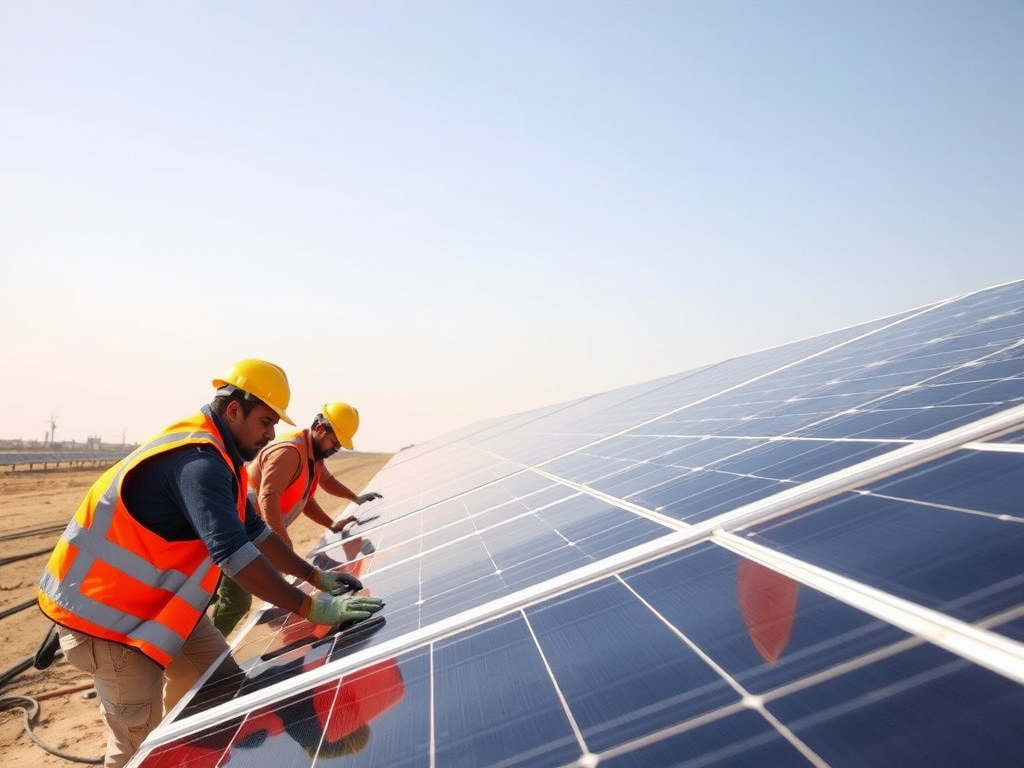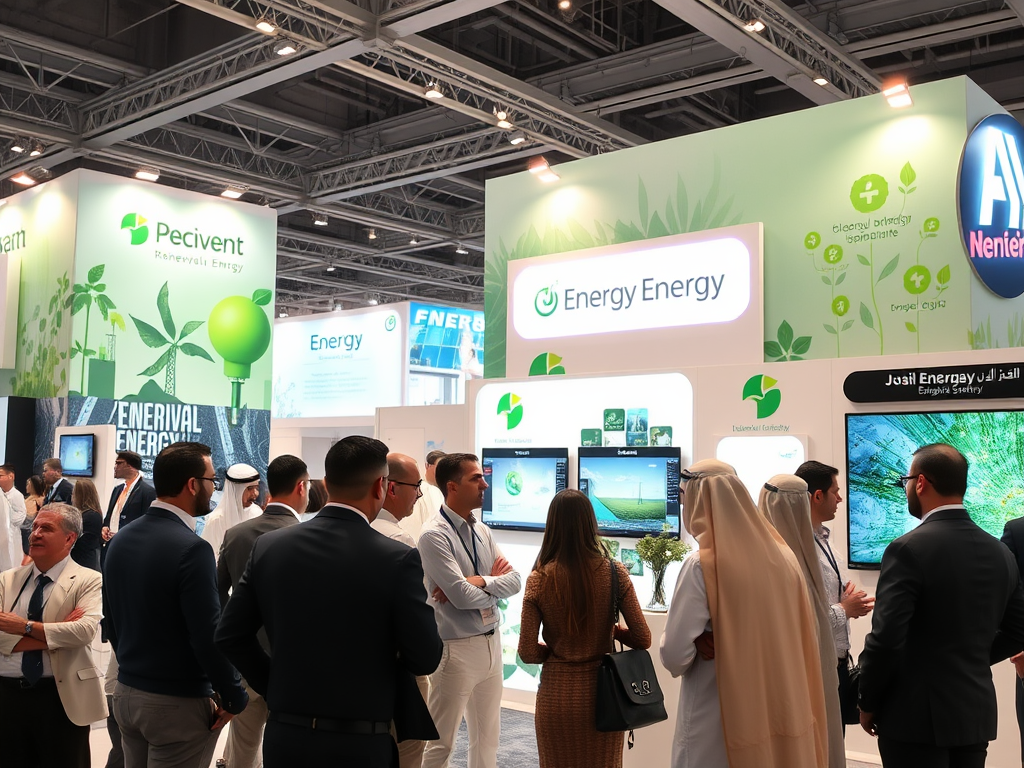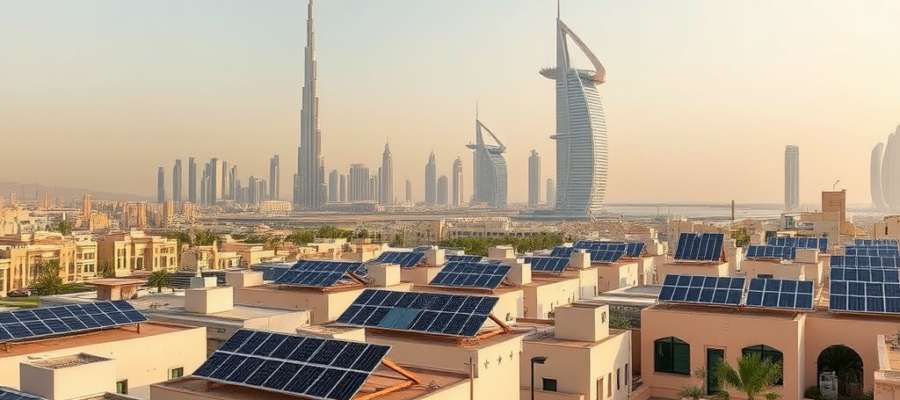Dubai has positioned itself as a global leader in renewable energy through strategic incentives designed to attract investments in green technologies. In recent years, various initiatives and programs have been established, creating a favorable environment for both local and international investors. These incentives encompass financial subsidies, regulatory support, and infrastructural developments, all aimed at fostering innovation and sustainability in energy generation. As Dubai continues to diversify its economy away from oil dependency, the significance of these incentives in attracting considerable financial commitments cannot be overstated.
The Framework of Renewable Energy Incentives in Dubai

The framework for renewable energy incentives in Dubai is robust and multi-faceted, catering to a wide range of stakeholders in the energy sector. The Dubai Clean Energy Strategy 2050 aims to make the emirate a global center for clean energy and green economy innovations. This comprehensive strategy includes initiatives such as:
- Investment in Solar Energy: Dubai’s integration of solar energy through projects like the Mohammed bin Rashid Al Maktoum Solar Park provides lucrative opportunities for investors.
- Regulatory Framework: Supportive policies and regulations, including simplified licensing processes for renewable energy projects, create a business-friendly atmosphere.
- Financial Incentives: Programs that offer grants, tax exemptions, and low-interest loans help reduce the cost of investment for green technologies.
- Partnerships and Collaborations: Strategic partnerships between government entities and private sectors promote research, innovation, and development in renewable energy technologies.
- Public Awareness Campaigns: Initiatives aimed at raising awareness about the benefits of renewable energy encourage community and corporate engagement.
Attracting Foreign Direct Investment (FDI)

Dubai’s focus on renewable energy has attracted substantial foreign direct investment, showcasing the emirate’s commitment to sustainability. The incentives provided not only lower the cost barrier for investments but also signal to global investors that Dubai is an ideal location for eco-friendly projects. The strategic location of Dubai as a business hub enhances its appeal, as investors can tap into emerging markets in the Middle East, Africa, and Asia. Furthermore, potential investors recognize the long-term benefits of investing in renewable energy due to global trends shifting towards sustainability. Dubai offers a dynamic and stable business climate characterized by a high quality of infrastructure and a well-educated workforce, making it a hotspot for FDI.
The renewable energy sector in Dubai not only attracts investments but also plays a pivotal role in job creation and economic diversification. The establishment of renewable energy projects leads to the creation of numerous jobs in various domains including:
- Engineering and construction of solar and wind farm projects.
- Research and development roles focused on innovative technologies.
- Management and operational positions within newly established companies.
- Consultancy and advisory roles aimed at guiding strategic developments in sustainability.
These job opportunities contribute to the local economy, ultimately fostering a more resilient workforce less reliant on the oil sector. Additionally, the growth of the renewable energy industry aligns with Dubai’s broader vision of becoming a leader in sustainable development, further enhancing its economic diversification efforts.
Challenges Faced in the Renewable Energy Sector
Despite the progress made through various incentives, Dubai’s renewable energy sector faces challenges that could hinder its growth. One significant obstacle is the initial investment cost associated with renewable energy technologies, which, despite incentives, can still be substantial. Moreover, the fluctuating global energy market influences investor sentiment and long-term commitments. There is also a need for continuous advancements in technology and infrastructure to keep pace with evolving standards and market demands. It is vital for the government to address these challenges proactively to sustain investor confidence and ensure the long-term success of renewable energy initiatives.
Conclusion
In conclusion, Dubai’s renewable energy incentives play a critical role in attracting investments necessary for the emirate’s transition to a sustainable economy. By implementing a comprehensive framework of financial support, regulatory measures, and public awareness strategies, Dubai has successfully positioned itself as an attractive destination for both local and international investors in the renewable energy space. Despite the challenges that lie ahead, the compelling vision for a green economy and ongoing support for innovation underline Dubai’s commitment to sustainability and economic diversification.
Frequently Asked Questions
1. What are the key incentives for renewable energy investments in Dubai?
The key incentives include financial subsidies, tax exemptions, easy licensing processes, and partnerships between public and private sectors.
2. How does Dubai’s Clean Energy Strategy 2050 contribute to investment attraction?
This strategy aims to transform Dubai into a global hub for clean energy, thereby boosting investor confidence through clear long-term goals and regulatory support.
3. What challenges does the renewable energy sector face in Dubai?
The sector faces challenges such as high initial investment costs, fluctuations in the global energy market, and the need for ongoing technological updates.
4. How does renewable energy investment create jobs in Dubai?
Investment in renewable energy leads to job creation in engineering, research and development, management, and consultancy roles within the industry.
5. Why is Dubai a prime location for renewable energy investments?
Dubai offers a stable business environment, strategic location for market access, high-quality infrastructure, and a proactive government keen on sustainability.
